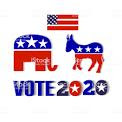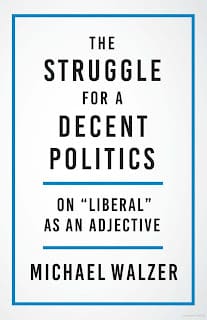It’s now official. To absolutely no one’s surprise, President Joe Biden has announced (via video) that he is running for a second term. Unlike Jimmy Carter in 1980 and George H.W. Bush in 1992, Biden faces no serious primary challenge. (Just as well, since – as those two examples illustrate – a primary challenge usually proves fatal for a president’s pursuit of a second term.) So we can safely expect the Biden will be the Democratic party’s nominee in 2024. Somewhat less certain (but by far still the most likely scenario) we may plausibly expect former President Donald Trump will be the Republican party’s nominee in 2024. So we are being set up for a rematch of 2020.
It has been a long time since our two parties have produced such an explicit rematch. One would have to go back to 1956, when President Eisenhower ran for re-election against Adlai Stevenson, whom he had defeated in 1952 and would go on to defeat again in 1956. While, that is not exactly an encouraging precedent for the Trump camp, it is also largely irrelevant, both because of the way our two political parties and the nominating process have evolved and because of the personal and political uniqueness of Trump.
There is an opinion out there that the American electorate is not looking forward to a rematch and that voters would probably prefer a different choice between two different (and preferably younger) candidates. I think there is some truth to that. Yet, as history shows, when the time comes, it is a binary choice and voters do choose – and do so somewhat predictably. It has been suggested that some may stay home or walk away (perhaps to some mischief-making third party). Perhaps some will, but again history suggests that, when the time comes, most voters come home to the party with which they identify. (A third party candidate would, almost certainly hurt Biden and guarantee Trump’s election.)
I think the familiar scenario of voters coming home to the party with which they identify is by far the more likely in 2024 than voters staying home. Over and above everything else, of course, there is the motivating force known as Donald Trump. Recent history suggests that Trump motivates voters to vote for him, who might not otherwise be regular or committed Republican voters. And, on the other side, Trump is the single most forceful motivator for anti-Trump voters to turn out for Biden and the Democrats. Four years ago, Biden did not start out as the likely next president – or even as the likely next nominee. Yet he won with the largest number of votes ever, while his opponent lost but in the process won the second highest number of votes ever.
My guess is that Trump will continue to motivate voters on both sides and will be the best asset the Biden campaign will have. This is not to denigrate Biden’s fantastic record of presidential accomplishment which certainly dwarfs not only Trump’s pathetic record (which his supporters probably don’t care that much about) but also the accomplishments of the previous Democratic president. On his record alone, Biden should be the obvious frontrunner in his re-election bid. Such is the sorry state of our present politics, however, that such considerations count less than they once might have.
In 2020, Biden successfully positioned himself and presented himself as the anti-Trump. Normally that would not work a second time, running as an incumbent. But, with Trump as the Republican candidate, it may well work again. And, as in 2020, Biden remains the best-placed Democrat, both in terms of personality and political experience, to make the anti-Trump case.
Personalities aside, there are existentially important issues at stake in the coming contest for president. Ideally, the outcome of the 2020 election should have settled those issues. Unfortunately, it has not. The fact that the 2020 election’s outcome remains contested in some quarters on the extreme right just highlights the fact that those issues have not yet been settled – much as Appomattox did not definitively settle the issues that ignited the Civil War. Hence, the symbolic appropriateness of the 2024 being a rematch in every way.




